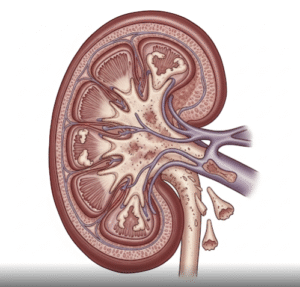South Korea is emerging as one of Asia’s fastest-growing centers for gene therapy innovation. Korean research institutes and biotech companies are pioneering new ways to treat chronic and genetic diseases, combining advanced gene delivery systems, precision editing tools, and immunotherapy approaches. Backed by strong government funding and cutting-edge research infrastructure, Korea’s laboratories are accelerating the journey from genetic discovery to clinical application.
Leading Korean Developments in Gene Therapy
➤ Helixmith: Non-Viral DNA Gene Therapy
Helixmith, one of Korea’s most recognized biotech companies, is leading the development of Engensis (VM202), a non-viral plasmid DNA therapy. This treatment delivers genes that promote the expression of hepatocyte growth factor (HGF), a protein that helps regenerate damaged nerves and blood vessels. Engensis is currently in late-stage trials for diabetic peripheral neuropathy and is also being tested for conditions like ALS, diabetic foot ulcers, and coronary artery disease.
The use of plasmid DNA, rather than viral vectors, makes this therapy safer and more scalable, reducing immune reactions and manufacturing complexity. Helixmith’s progress has put Korea at the forefront of non-viral gene delivery platforms.
➤ KRIBB: Advanced Cell and Gene Integration Research
The Korea Research Institute of Bioscience and Biotechnology (KRIBB) is leading national efforts to combine gene therapy with cellular and immune-based treatments. Researchers are focusing on developing:
- CAR-NK (Chimeric Antigen Receptor Natural Killer) cell therapies to target cancer cells more precisely.
- Genetically engineered immune cells that have improved persistence and targeting ability.
- Gene-modified stem cells that can repair or replace damaged tissues.
KRIBB’s teams are also exploring the combination of gene editing tools like CRISPR with immunotherapy to create next-generation cancer treatments.
➤ Stem Cell and Gene Function Research
Another core branch of Korean innovation involves combining stem cell therapy with gene modification. Korean scientists are developing gene-corrected induced pluripotent stem cells (iPSCs) that can be turned into healthy tissue for patients with genetic disorders. By editing disease-causing mutations directly within a patient’s cells, researchers aim to develop therapies for previously untreatable conditions, including muscular dystrophy and certain blood disorders.
The long-term vision is to use a patient’s own cells, correct them genetically, and reintroduce them safely into the body—creating a personalized cure without immune rejection.
Government and Institutional Support
Korea’s government and biotech agencies are investing heavily in gene therapy infrastructure. Through the Korea Drug Development Fund (KDDF), several major projects have been funded, such as:
- GI Innovation developing a cancer-targeting gene therapy in partnership with university hospitals.
- GC Cell advancing CAR-NK therapies for blood cancers.
- Liveome creating microbial-based gene therapy approaches to treat immune disorders like graft-versus-host disease.
This funding structure is designed to move promising lab discoveries quickly into human trials while ensuring strict safety and quality standards.
Emerging Areas of Research
➤ Gene Editing and Precision Medicine
Korean universities and biotech startups are using CRISPR-Cas9 and other gene-editing systems to develop targeted treatments for inherited diseases. The goal is not only to treat symptoms but to permanently correct mutations at the DNA level. Research is expanding into fields such as ophthalmology, metabolic disorders, and neurology.
➤ Oncolytic and Immune Gene Therapy
Korean cancer researchers are experimenting with gene-modified viruses that selectively infect and destroy tumor cells. These oncolytic gene therapies are being combined with immune checkpoint inhibitors to enhance the body’s anti-tumor response.
➤ Gene Delivery Technologies
Innovations in nanoparticle and exosome-based delivery are addressing one of gene therapy’s biggest challenges—how to safely and efficiently transport genetic material into target cells. Korean labs are developing lipid-based and polymer-based carriers that can deliver DNA or RNA without triggering harmful immune responses.
Strengths of the Korean Gene Therapy Ecosystem
- Strong Research Networks: Collaboration between universities, national labs, and hospitals ensures fast translation of discoveries into treatments.
- Efficient Clinical Trials: Korea’s advanced healthcare system and streamlined regulatory processes make it an ideal location for gene therapy trials.
- Public-Private Partnerships: Joint ventures between global pharmaceutical companies and Korean research institutes encourage technology exchange and investment.
- Manufacturing Capabilities: State-of-the-art biopharma facilities enable large-scale production of gene therapy materials, including viral and non-viral vectors.
Challenges and Future Directions
Despite rapid progress, several challenges remain:
- Long-Term Safety: Continuous monitoring is needed to ensure gene therapies do not cause unintended genetic changes.
- Cost of Treatment: The expense of manufacturing and delivery must be reduced for wider accessibility.
- Regulatory Evolution: Guidelines must adapt quickly to oversee new gene editing and bioprinting technologies.
- Ethical Considerations: Genetic modification raises important debates around consent, fairness, and potential misuse.
Looking forward, Korean researchers aim to make gene therapy safer, more affordable, and more personalized. Efforts are already underway to create AI-assisted gene analysis systems that can design customized therapies for individual genetic profiles.
The Road Ahead
Korea’s advancements in gene therapy demonstrate its growing role as a global innovation hub in biomedical science. By combining world-class research, supportive policy, and strong industry partnerships, Korean laboratories are pioneering treatments that may redefine the future of medicine.
In the coming years, we can expect breakthroughs not just in treating chronic diseases, but in curing genetic disorders at their source—a vision that Korean science is rapidly turning into reality.













